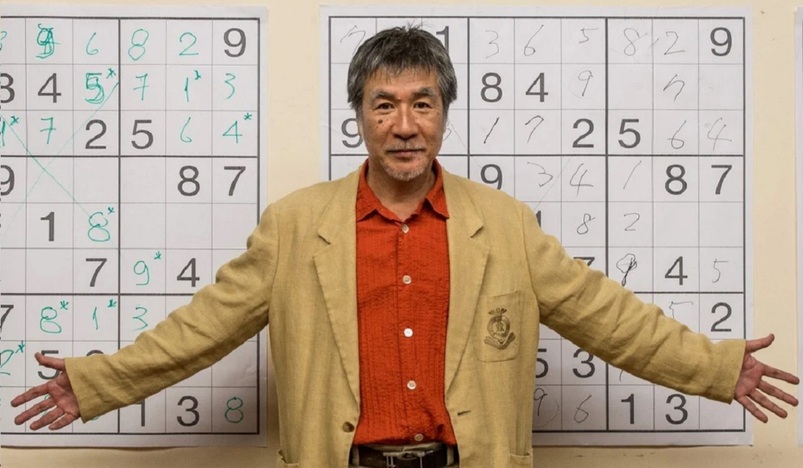
Sudoku: Maki Kaji, puzzle enthusiast, dies aged 69
Maki Kaji, the Japanese man known as the "Godfather of Sudoku", has died at the age of 69.
Kaji gave the number puzzle its name after publishing it in his magazine Nikoli in the 1980s.
Since then the popular game - involving placing the numbers 1 to 9 in each row, column and square of a 9 by 9 grid - has spread around the globe.
Tournaments take place across the world and it is estimated that millions play versions of the game each day.
On Monday Nikoli published a statement on its website saying Kaji had died at his home in Tokyo from bile duct cancer on 10 August 2021.
Kaji was born in the northern Japanese city of Sapporo in 1951.
After dropping out of Keio University, he set up the puzzle magazine Nikoli, which published its first edition in August 1980.
The origins of Sudoku are unclear. Some credit the 18th Century Swiss mathematician Euler as its creator, while others say it came to the Arab world from China via India in the 8th or 9th Century, according to the New York Times.
French newspapers published a number of early versions of the game in the late 19th Century, including one called "le carré magique diabolique", or the evil magic square, published by La France newspaper in July 1895.
But US architect Howard Garns is often credited as the creator of the modern version of the puzzle in the 1970s, under the name Number Place. It was this game that Kaji spotted in 1984.
"It was a very interesting puzzle, fun to solve," he said in a 2008 speech.
"But the name, Number Place, did not hit me. I wanted to create a Japanese name."
Kaji landed on Suuji wa dokushin ni kagiru, meaning "Numbers should be single".
Pushed by colleagues to come up with a catchier name as he rushed to get to a horse race, he said he came up with the name Sudoku "in about 25 seconds".
The game became popular in Japan but only turned into a global phenomenon in 2004, after The Times of London published a puzzle.
Kaji did not trademark the game, and did not gain financially from its huge success. But he said the joy of the puzzle and of others enjoying the game was more important than any monetary reward.
"I get really moved when I see a new idea for a puzzle which has lots of potential," he told the BBC in 2007.
"I get really excited about it. It is like finding treasure."
Source: BBC News
.jpg)
Qatar Secures Place Among the World's Top 10 Wealthiest Nations
.jpg)
Hamad International Airport Witnesses Record Increase in Passenger Traffic

Saudi Arabia: Any visa holder can now perform Umrah

What are Qatar's Labour Laws on Annual Leave?
Leave a comment